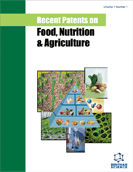[1]
Rijswijck IMHV, Wolkers-Rooijackers JCM, Abee T, Smid EJ. Performance of non‐conventional yeasts in co‐culture with brewers’ yeast for steering ethanol and aroma production. Microb Biotechnol 2017; 10: 1591-602.
[2]
Granato D, Branco GF, Faria JA, Cruz AG. Characterization of Brazilian lager and brown ale beers based on color, phenolic compounds, and antioxidant activity using chemometrics. J Sci Food Agric 2010; 91: 563-71.
[3]
Linko M, Haikara A, Ritala A, Penttilã M. Recent advances in the malting and brewing industry. J Biotechnol 1998; 65: 85-98.
[4]
Arshad M, Hussain T, Iqbal M, Abbasc M. Enhanced ethanol production at commercial scale from molasses using high gravity technology by mutant S. cerevisiae. Braz J Microbiol 2017; 48: 403-9.
[5]
Puligundla P, Smogrovicova D, Obulam VSR, Ko S. Very High Gravity (VHG) ethanolic brewing and fermentation a research update. J Ind Microbiol Biotechnol 2011; 38: 1133-44.
[6]
Silva DP, Brányik T, Dragone G, Vicente AA, Teixeira JA, Almeida e Silva JB. High gravity batch and continuous processes for beer production: Evaluation of fermentation performance and beer quality. Chem Pap 2008; 62: 34-41.
[7]
Dragone G, Silva DP, Almeida e Silva JB. Factors influencing ethanol production rates at high-gravity brewing. Food Sci Technol 2004; 37: 797-802.
[8]
Bliek M, Toye G, Dumortier F, Verstrepen KJ, Delvaux FR, Thevelein JM, et al. Isolation and characterization of Brewer’s yeast variants with improved fermentation performance under high-gravity conditions. Appl Environ Microbiol 2007; 73: 815-24.
[9]
Guimaraes PMR, Virtanen H, Londesborough J. Direct evidence that maltose transport activity is affected by lipid composition of brewer’s yeast. J Inst Brew 2006; 112: 203-9.
[10]
Ferreira DR, Beleia AP, Silva RSSF. Alterations of palm oil (Elaeis guineensis) in the continuous industrial par frying of breaded chicken snacks. Food Sci Technol 2014; 34: 32-7.
[11]
Pham TNL, Doan NHD, Le Van VM. Using fed-batch fermentation in very high gravity brewing: Effects of Tween 80 and ergosterol supplementation on fermentation performance of immobilized yeast in calcium alginate gel. Int Food Res J 2010; 17: 995-1002.
[12]
Tran QH, Nguyen TT, Le VVM, Hoang KA. Effect of Tween 80 and ergosterol supplementation on fermentation performance of the immobilized yeast in high gravity brewing. Int Food Res J 2010; 17: 309-18.
[13]
Mussatto SI, Roberto IC. Establishment of the optimum initial xylose concentration and nutritional supplementation of brewer’s spent grain hydrolysate for xylitol production by Candida guilliermondii. Process Biochem 2008; 43: 540-6.
[14]
AOAC International. Official Methods of Analysis of AOAC International,
AOAC International: Gaithersburg 2000. 2: 26-44.
[15]
Breuil C, Saddler JN. Comparison of the 3,5-dinitrosalicylic acid and Nelson-Somogyi methods of assaying for reducing sugars and determining cellulase activity. Enzyme Microb Technol 1985; 7: 327-32.
[16]
Adolfo Lutz Institute. Analytical standards: Chemical and physical
methods for food analysis, 4th Ed., Adolfo Lutz Institute: São Paulo 2005. 1: pp. 407-19
[17]
Bonneu M, Crouzet M, Urdaci M, Aigle M. Direct selection of yeast mutants with reduced viability on plates by eritrosine B. staining. Anal Biochem 1991; 193: 225-30.
[18]
Carvalho GBM, Silva DP, Bento CV, Vicente AA, Teixeira JÁ, Graças MAF, et al. Banana as adjunct in beer production: Applicability and performance of fermentative parameters. Appl Biochem Biotechnol 2009; 155: 356-65.
[19]
Borzani W. Batch ethanol fermentation: The correlation between the fermentation efficiency and the biomass initial concentration depends on what is considered as produced ethanol. Braz J Microbiol 2006; 37: 87-9.
[20]
Box GE, Hunter WG, Hunter JS. Statistics for experimenters An introduction to design, data analysis and model building. John Wiley: New York 1978.
[21]
Almeida RB, Almeida e Silva JB, Lima UA, Silva DP, Ana A. Evaluation of fermentation parameters during high-gravity beer production. Braz J Chem Eng 2001; 18: 459-65.
[22]
Dragone G, Mussato SI, Almeida e Silva JB. High gravity brewing by continuous process using immobilised yeast: Effect of wort original gravity on fermentation performance. J Inst Brew 2007; 113: 391-8.
[23]
Avesukaree C, Damnernsawad A, Kruatrichue M, Pokethtuyook P, Boonchird C, Kaneko Y, et al. Genome - Wide identification of genes involved in tolerance to various environmental stresses in saccharomyces cerevisiae. J Appl Genet 2009; 50: 301-10.
[24]
Devantier R, Pedersen S, Olsson L. Characterization of very high gravity ethanol fermentation of corn mash. Effect of glucoamylase dosage, pre-saccharification and yeast strain. Appl Microbiol Biotechnol 2005; 68: 622-9.
[25]
Arrizon J, Gschaedler A. Increasing fermentation efficiency at high sugar concentrations by supplementing an additional source of nitrogen during the exponential phase of the tequila fermentation process. Can J Microbiol 2002; 48: 965-70.
[26]
Burlew KH, DiCosimo R, Grady MC, Patnaik R. Supplementation
of fatty acids for improving alcohol productivity.
US20110312053A1 2010.
 73
73 2
2


















